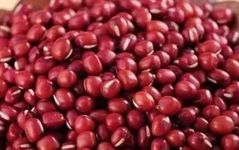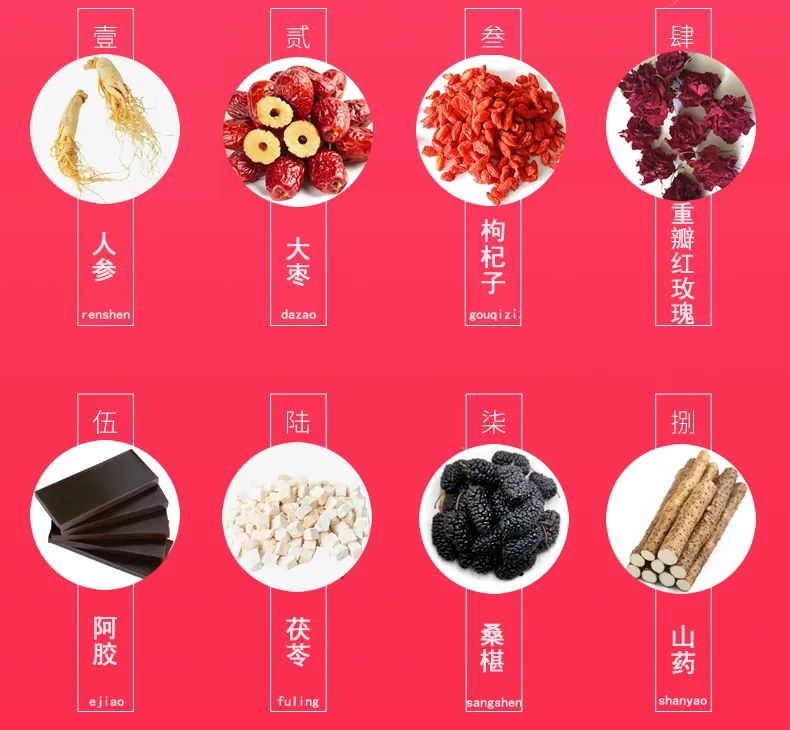
Nourishing Qi and Blood Quickly
Insufficient blood and Qi can lead to a pale complexion and increased susceptibility to illness. What are the best foods to nourish blood and Qi? How can one replenish their Qi and blood? What are the symptoms of Qi and blood deficiency? How can we identify these issues? Let’s explore some nourishing soups for blood and Qi.
Best Foods for Nourishing Blood and Qi
1. Blood Deficiency
The main manifestations of blood deficiency include a pale and sallow complexion, pale lips and nails, dizziness, fatigue, palpitations, insomnia with vivid dreams, dry stools, irregular menstrual cycles in women, pale tongue with little coating, and a thin, weak pulse. To replenish blood, one should consider methods that nourish and generate blood. Suitable herbs for blood replenishment include Dang Gui (Angelica Sinensis), Ejiao (Donkey-hide Gelatin), Shu Di Huang (Rehmannia Glutinosa), Sang Shen (Mulberry Fruit), Da Zao (Jujube), and Gou Qi Zi (Goji Berries).
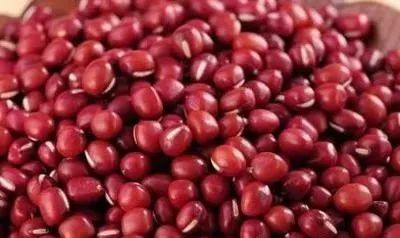
Foods that nourish blood include black-boned chicken, black sesame seeds, walnut meat, longan flesh, chicken, pig’s blood, pig liver, brown sugar, and red beans, which can be alternated regularly.
Foods to avoid for blood deficiency include water chestnuts and garlic.
Recommended dishes include Dang Gui and Shu Di Black-boned Chicken, Huang Shan Beef Brisket Stew, Huang Ju with Hairtail Fish, and Rose Huang Ju Drink.
Foods to limit or avoid include seaweed, cardamom, lotus leaves, white wine, mint, chrysanthemum, betel nut, raw radish, etc.
2. Qi Deficiency
The main manifestations of Qi deficiency include shortness of breath, low energy, a weak voice, shortness of breath upon exertion, easy sweating, dizziness, palpitations, a sallow complexion, poor appetite, heat sensations, spontaneous sweating, prolapse of the rectum, uterine prolapse, a pale and swollen tongue with tooth marks, and a weak pulse. Qi deficiency requires Qi tonics, with suitable herbs including Ren Shen (Ginseng), Huang Qi (Astragalus), and Dang Shen (Codonopsis).
Foods that nourish Qi include beef, chicken, pork, glutinous rice, soybeans, white broad beans, jujubes, crucian carp, carp, quail, yellow eel, shrimp, and mushrooms, which can be alternated regularly.
Foods to avoid for Qi deficiency include hawthorn, bergamot, betel nut, garlic, turnip greens, radish leaves, coriander (cilantro), rutabaga, pepper, and mint.
3. Anemia or Blood Deficiency in Women
Most women experience symptoms of blood deficiency, such as frequent dizziness, blurred vision, dull complexion, insomnia, vivid dreams, and irregular menstruation. Those with blood deficiency often have a slender physique and poor health.

Common foods for nourishing blood include spinach, black beans, carrots, daylilies, lotus root, black fungus, chicken, pork, lamb, and sea cucumber. Fruits such as mulberries, grapes, jujubes, and longans are also beneficial. Additionally, one can combine these foods with traditional Chinese herbs for blood nourishment, such as Dang Gui, Hong Hua (Safflower), Shu Di, Chuan Xiong (Ligusticum Chuanxiong), Bai Shao (White Peony), and Ejiao. These herbs can be used to prepare palatable medicinal dishes like Dang Gui and Ginger Lamb Soup, Ejiao Stewed with Yellow Wine, and Four Substance Chicken Soup, which are effective for nourishing blood.
4. Combined Qi and Blood Deficiency
Combined Qi and blood deficiency typically occurs in conditions such as anemia, leukopenia, thrombocytopenia, after significant blood loss, or excessive menstruation in women. The main manifestations include symptoms of both Qi and blood deficiency, requiring tonics that benefit both Qi and blood.
Recommended dishes include Crucian Carp and Tofu Soup, Qi and Blood Nourishing Soup, and Medicinal Chicken.
Women with Qi deficiency often exhibit symptoms such as a weak complexion, pale skin, fatigue, excessive vaginal discharge, and irregular menstrual cycles.
Some Qi tonics can be used for adjustment, such as Ren Shen, Huang Qi, Bai Zhu (Atractylodes), Da Zao, and Gan Cao (Licorice), which can be used to stew chicken or pork ribs for Qi replenishment. When using ginseng for supplementation, it is important to be cautious, using small doses and short courses, and it is best to consult a physician before use. Women with Qi deficiency should consume more radishes, jujubes, and pork rib soup during the autumn and winter seasons; for herbal supplementation, Si Jun Zi Tang (Four Gentlemen Decoction) made with Huang Qi, Ren Shen, Bai Zhu, and Gan Cao is recommended.
Symptoms of Qi and Blood Deficiency
1. Observing the Eyes
The color of the sclera can indicate health; a yellowish or cloudy sclera with blood vessels suggests Qi and blood deficiency. Bright, wide-open eyes indicate sufficient Qi and blood, while dark circles, dry eyes, and heavy eyelids indicate deficiency.
2. Observing the Skin
Healthy skin is pink, shiny, elastic, and free of wrinkles or blemishes, indicating sufficient Qi and blood. Conversely, rough, dull, yellowish, or discolored skin indicates poor health and deficiency.
3. Observing the Hair
Shiny, thick, and smooth hair indicates sufficient Qi and blood, while dry, thinning, yellowing, or split ends indicate deficiency.
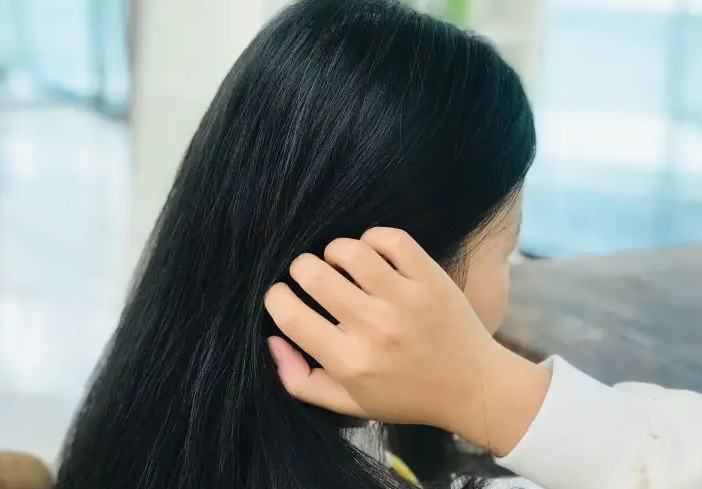
4. Observing the Ears
Modern individuals often have smaller, stiffer, and deformed ears compared to older generations, indicating a decline in physical health. Children and young people rarely have full, rounded ears, which were common in the past, suggesting that previous generations had better health.
For children, ear shape is important, while for adults, the focus is on color, spots, and tenderness. Healthy ears should be light pink, shiny, free of spots and wrinkles, and plump, indicating sufficient Qi and blood. Dull, lifeless ears indicate a decline in Qi and blood. If the ears are shriveled, dry, spotted, or wrinkled, it suggests kidney function decline, which requires attention.
Soups for Nourishing Blood and Qi
1. Tremella and Red Date Soup
Tremella, also known as “poor man’s bird’s nest,” has similar properties to bird’s nest but is more affordable. While bird’s nest can be overly warming, tremella is cooling and helps moisten dryness. To prepare, simmer tremella, dried longan, goji berries, and red dates together. This soup is not only delicious but also helps improve complexion and promotes a slim figure.
2. Black Glutinous Rice Blood Nourishing Porridge
Black glutinous rice, longan, and red dates are well-known for their blood-nourishing properties. Adding nutrient-rich yam enhances their effects. Cook black glutinous rice, red dates, longan, yam, and brown sugar together. Remember to consume this regularly. Note that while longan is beneficial for blood and Qi, it can be hard to digest, so use only seven to eight pieces (for those with cold stomachs, add two slices of red ginseng).
3. Beauty and Blood Nourishing Oatmeal Porridge
Women should drink oatmeal porridge for blood nourishment. Soak walnuts, red dates, and dried longan, wash the oatmeal, and cook it in a rice cooker with appropriate water. Keep an eye on the time; once it boils, switch to the porridge setting and add some brown sugar before serving.
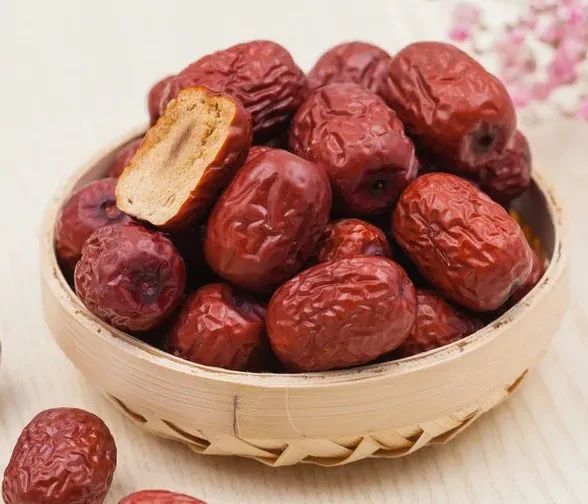
4. Double Red Blood Nourishing Soup
Prepare 500 grams of sweet potato, 10 grams of red dates, and an appropriate amount of brown sugar with 2000 milliliters of water. Cook together until the sweet potato is soft, then add the brown sugar. Those who enjoy pumpkin can substitute sweet potato with pumpkin.
Conclusion: Symptoms of Qi and blood deficiency can be observed through the eyes, skin, hair, and ears. To nourish blood and Qi, one can consume foods such as black-boned chicken, longan, pig liver, black sesame seeds, brown sugar, red beans, pork, beef, chicken, jujubes, and soybeans. Additionally, one can prepare nourishing soups for blood and Qi.
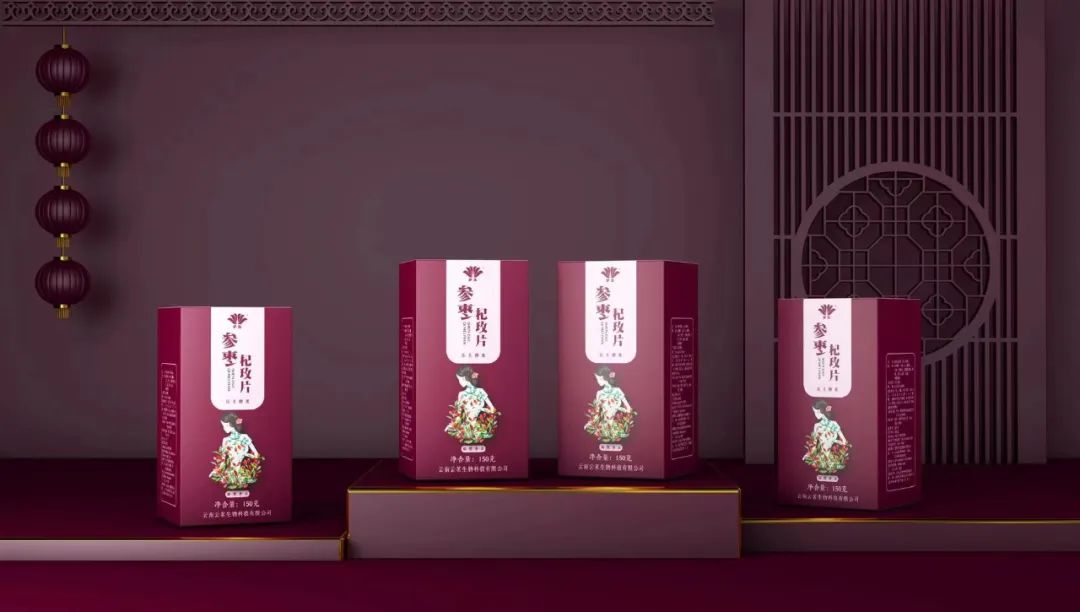
Nutritional Foods for Nourishing Qi and Blood
When symptoms such as fatigue, shortness of breath, and dizziness occur, dietary nutritional foods can help alleviate these symptoms and support Qi and blood nourishment. During this period, it is important to avoid stimulating beverages such as red wine, cola, and coffee to maximize effectiveness.
It is recommended to avoid intense exercise, reduce late-night activities, refrain from smoking and drinking, and maintain a positive and cheerful mood in daily life.
Copyright belongs to the original author. Please contact us for timely handling of any infringement.


Scan the QR code to follow our public account


